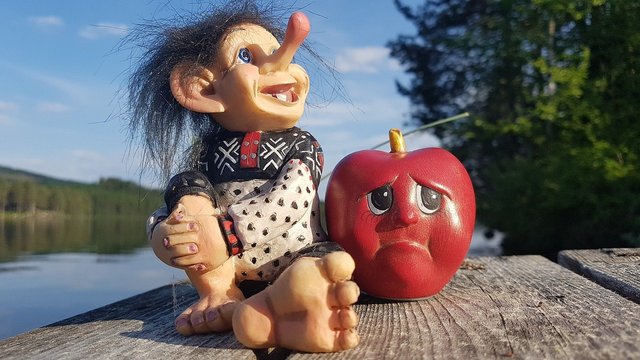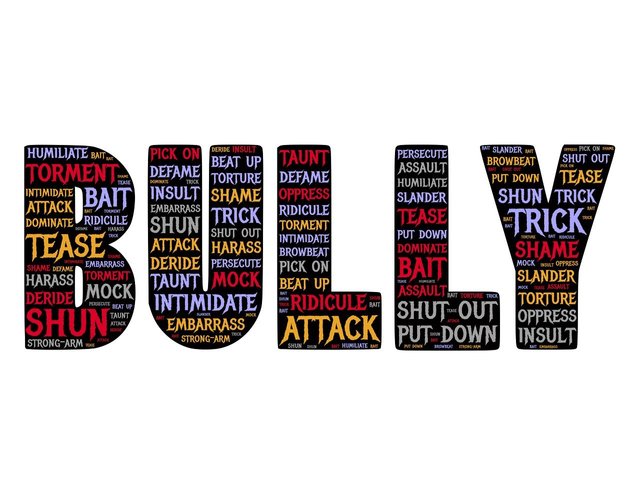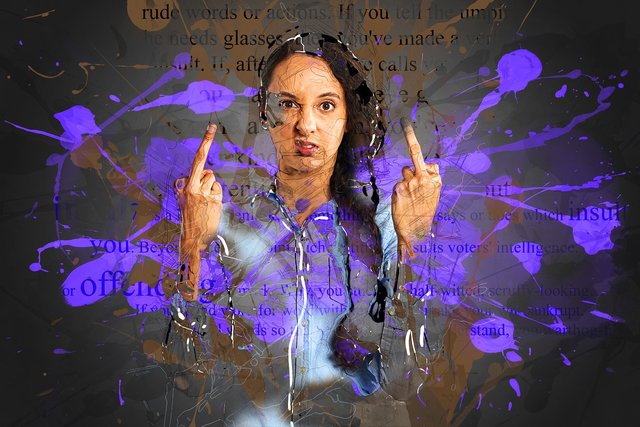What Is a "Karen"?
Apologies to my step-sister-in-law, Karen, and all the other Karens in the world, for all the people who've abused her name. Clearly, they don't know you!

White Woman Who Called Police On Black Bird-Watcher Allegedly Made A Second 911 Call
It's only been within the past few months that I became aware of the viral meme, "Karen," that is used by some against those who are complaining about something. I know that there are some people out there who would immediately politicize "Karen" by saying it's one group or another, but I don't know the political affiliations of the people who use it or, indeed, if they have any, nor do I think that making such blanket statements is accurate, and stereotyping is something I try to stay away from.
"Karen" is used against both males and females without any distinction that I'm aware of. Originally, names like "Karen" and others were used to denote someone who was engaging in unreasonable or discriminatory behavior, and were gender-based. In some of these cases, it was probably well deserved! This has changed.
The best Karen memes

How Is "Karen" Used
It doesn't seem to me that Karen is used nicely, like "Hey, Karen, I'm so sorry to have to point this out but you're being too whiny. Please don't be offended." Rather, it seems that calling someone "Karen" is meant as an insult and it also seems that it is an attempt to shut someone up. I have seen it used many times upon others who are expressing concern about something, or who are asking people to follow the rules. Sometimes the concerns are not (particularly) valid and perhaps the person IS being too sensitive, but I've seen plenty of situations in which the concerns or complaints are entirely valid and it seems more like the label-ascribers feel that their freedom to be unfair or abusive (based on the context of the complaint) is being circumscribed. Other times, it's a matter of poor communication on one side or both, resulting in a brouhaha until either one side is overwhelmed and walks away, or a clarification or realization of the true meaning is announced. What I mean by that is that "Karen" voices a complaint with the assumption that everyone will immediately and fully understand his/her reaction and, thus, doesn't fully explain what they mean. If they can respond to the slight by causing their attackers to understand in a way that causes agreement, the attackers usually fall silent without apology. If awareness isn't reached, the attackers often redouble their attacks and ridicule the person.

As an example, a while back I made a complaint about something I'd heard on a radio station that I felt was in poor taste and detrimental to society whether or not it was a joke. There was an advertisement by the radio station in which they were apparently promoting the use of illegal drugs. Having known recovering addicts and parents who've lost their kids to drug addiction, I felt this was not acceptable. I was immediately called "Karen" and was harassed by numerous people, while others had the good sense to just say "change the station" or something else that wasn't rude. The attacks continued and I realized that I had assumed that people would immediately realize my unstated concern that impressionable young people who idolize rock stars or just love that station might take that ad as a green light for drug use. While I support the legalization of all drugs in order to undermine the system of drug lords to pushers (with many caveats and systems put into place to help substance addicts), I heartily disagree with their use. I then made a clarification to everyone about why I had posted the complaint, including about a friend who'd lost both her children to overdosing on opioids. Suddenly, everyone stopped insulting me. No further insults were posted but no one apologized, either, which shows a lack of character and maturity in all the people who'd insulted me in various ways.
The "Winner"
Who gives up first often depends on how many people are against and how many people are for what "Karen" said, but it also depends on the sensitivity of those involved and how sharp-witted the combatants are, and whether they descend further into the disrespectful behavior of name-calling, other ad-hominem attacks and bullying in general. Tactics I've seen used against the complainer also including trying to demonstrate intellectual and/or moral superiority, demanding that they shut up, or go elsewhere, telling them to go somewhere that is appropriate for small children, suggesting that they are part of a problem, and so on.
Complaints and Attacks
Does everyone who complains about something deserve to be validated? I don't think so. However, being rude, condescending or otherwise abrasive with someone you don't agree with - whether or not you know them - doesn't show how clever or right you are. It shows how petty, manipulative, small-minded and insensitive you are. Calling someone "Karen" or any other name is just another insult and it does nothing to help anyone. It shows the rest of us just where this person is on the journey to maturity. Sadly, some people never grow out of the behavior of bullying others with whom they disagree. We can see this in the political arena whenever there is an election. In America's political arena, in the news media and other venues one can readily find numerous examples of slander and libel, as well as bullying and name-calling, but it is not limited to my country of birth.
Let's be honest, folks; attacking someone because they've complained about something does not solve anything and will likely cause emotional injury for those who are not expecting such a reaction and/or aren't emotionally mature enough to cope with it without taking offense. And, to be sure, the use of "Karen" is meant to be offensive. It's a sort of verbal slap in the face, a put-down, intended to rile someone up. I'm not sure, but I suspect that people who use such a term actually hope for a confrontation with their victim that will end up with that person running away while crying. Anonymity on the Internet hasn't brought out the best in a lot of people; there are certainly plenty of people who have either been raised in such abuse to the point that they think they're justified to abuse others behind the mask of the Internet, or a sadistic streak in them comes out BECAUSE of the anonymity. I'll leave the dissection of that part of the problem to mental health experts. In the end, it doesn't actually matter that much, because the aggressors are attacking - with ill intent - those who have a real or perceived issue that they want addressed.
Intent and Impact
Going hand in hand with this is the issue of the value of your intent versus the impact it has. If you make a statement that you feel is valid and not rude, especially if your intention is to help others, it doesn't automatically follow that other people will appreciate it in the same spirit in which you delivered it. Because we all look at the world through different filters and biases, and have different personalities, experiences and knowledge, we all react to - and, indeed, remember - the same thing in different ways. I have seen this happen on many occasions, and even been on the receiving end of attacks because of someone's misperception of my message and intent. Even after making it clear what your intent was, there is no guarantee that the person will either accept it or your apology, unless you give an unconditional apology...And, sometimes, not even then. If enough people decide that your attacker's view is more valid than your own (even if you're telling the truth), you can find yourself under heavy attack and even get banned from the site.
Freedom of Speech VS. Truth in Speech, and Consequences
Although the US and other countries enjoy some degree of freedom of speech, the power of advocacy and the media can be used to crush and even destroy. If you make a personal comment on a personal account that offends enough people to a large enough degree, you can find yourself not only being punished on the platform - some employers will fire you if there is enough outcry or the employer actually agrees with them, others will get rid of you simply to distance themselves from the issue and to avoid coming under fire themselves. This has nothing to do with the employee making questionable comments as a representative of the company, or via official channels - this is an attack on an individual who has expressed their opinion as a private person, not as part of their company, in order to silence them - right or wrong. I am seeing more and more of this behavior on the Internet - of people trying to shut down other people through abusive methods - and I am concerned by it. This is not because I feel that bigots, racists and liars should be supported. No. If the KKK or, conversely, the Color of Change makes a false or inflammatory statement, they should be held accountable and punished accordingly. If a politician spreads gossip or makes detrimental statements about an opponent, they should either prove it or be punished. I do not think that freedom of speech should be so lax that people can say whatever they want without there being consequences for lies.
That said, it is also imperative that the legal system be designed in such a way that everyone has equal rights and opportunities under the law to both seek redress and defends themselves against attacks. There are many people who, lacking the financial resources as a potential plaintiff, do nothing (investigation and/or court) because they cannot afford to. This is especially true if they need help fighting a wealthy individual or company because they can afford to create all sorts of delays that will force the plaintiff to give up because of lack of time and money. The US's legal system is very prone to this problem, plus anyone who wants to fight in court must not just understand the law - they must also know about all the relevant precedents, and be able to manipulate the jury into siding with them. There are also issues of corrupt judges, bribed juries, and discriminatory behavior in the court, falsification of evidence, perjury and other skullduggery by certain law enforcement agencies. This makes it very hard for most people to seek help, even if their need is legitimate - even if someone has been raped or murdered. All these things aside, even the matter that some lawyers do a better job than others can seriously impact your chance of success in court, which shouldn't be possible.
Conclusion
You can call me Karen (or motherfucker, asshole, etc.) as much as you want, but I won't be upset because I don't view the use of those words and other ad-hominem attacks as anything more than the pathetic attempts of an immature person who lacks the intelligence to properly rebut a comment in a logical, mature fashion.

The fact is that how egregious an insult is does not really derive from the word(s) chosen - it derives from the:
- context: Sometimes, what appears to be an insult is not when you consider the context...or it is.
- validity: Is the insult valid? If, for example, you call someone a racist who is a member of a racist group, that is valid as long as the insult is used in the proper context (i.e. calling Kyle Rittenhouse a white supremacist for having tried to protect a property and shot 3 other white men is not valid, but calling him a killer is).
- intent: Is the person deliberately attempting to make another person, group, organization or company look bad with or without good reason, or is the attacker unable to effectively debate their victim and, thus, resorted to ad-hominem and defamatory attacks? Was the true intent of the person to help others readily apparent to a third-party, or does it seem that the person was using their sarcasm, sharp comments and other forms of verbal attacks to undermine, manipulate, insult, silence and/or troll viewers/listeners?
- impact: How do the viewers/listeners react to the insult? How many people are offended by it? Is their reasoning rational if not logical? Is there something in their history that inclines them to react this way? Thus, how strongly ANY insult, be it the "worst" words in the language or words that have multiple connotations, causes a reaction in you, and whether that reaction is positive or negative depends to a large degree on how you choose to react to it. By maintaining a higher level of awareness, and refusing to be trolled, you can maintain a calm demeanor and outwit even the nastiest of trolls far more easily, even if they dive right into a litany of insults and lies to try to derail or discredit you.
"Karen" is, in the final analysis, an ad-hominem attack that is often used to discredit and shut up anyone whom you don't agree with, even if what they have said or written is valid. It may once have been used in a gender- and situation- appropriate manner, regarding issues such as a white woman calling 911 about a black man who asked her to put her dog on a leash, a rude customer making a hyperbolic complaints to the manager about their wait staff, or an elderly, white, wealthy couple coming out onto their property with guns and threatening protesters on the street with them, but this is no longer the case. The value of the term "Karen" has been destroyed by its abuse and, thus, a moderator, administrator or other person in authority must make an impartial judgement and punishment - even if they personally like or side with the person who is wrong.
The best policy when dealing with trolls is:

This is to say that you should ignore the person, perhaps muting or blocking, and report the person if such an option exists.
If you appreciate this article, please upvote/like , resteem/share
, resteem/share and share it to Facebook
and share it to Facebook , Twitter
, Twitter , Reddit
, Reddit , LinkedIn
, LinkedIn and wherever else
and wherever else you can!
you can!